There was one question that kept nagging at me while watching Don’t Look Up: where had I seen this before? I couldn’t get it out of my mind. There was something so eerily familiar about how this Scooby-doo gang of friends ran around, trying to convince the world of the inconceivable, and unsuccessfully doing so. With nothing at stake except my dogged curiosity, I had to find out. So after hours of poring over every single film I’d watched, or book I’d read, it finally hit me.
Chicken frickin’ Little.
Don’t Look Up was nothing more than a live-action Chicken Little. The indifference and scepticism of society when the titular character cries wolf about the sky falling. Or when the singular group of friends take matters into their own hands to stop the inevitable; against public scorn. Don’t Look Up felt so reminiscent of the animated film in many ways, only without the emotional girth, or nuance, that made the latter (original?) so great.
And yet, how this Disney-fied satire somehow got nominated for four Academy Awards, including Best Picture, over notably better films like The French Dispatch, or Spencer, or Green Knight is beyond me. But it’s an easy recipe, really. Throw in a couple of Hollywood A-listers, some vague socio-political commentary, maybe even a quirky line or two, and the Academy wets its pants.
Where to Look?
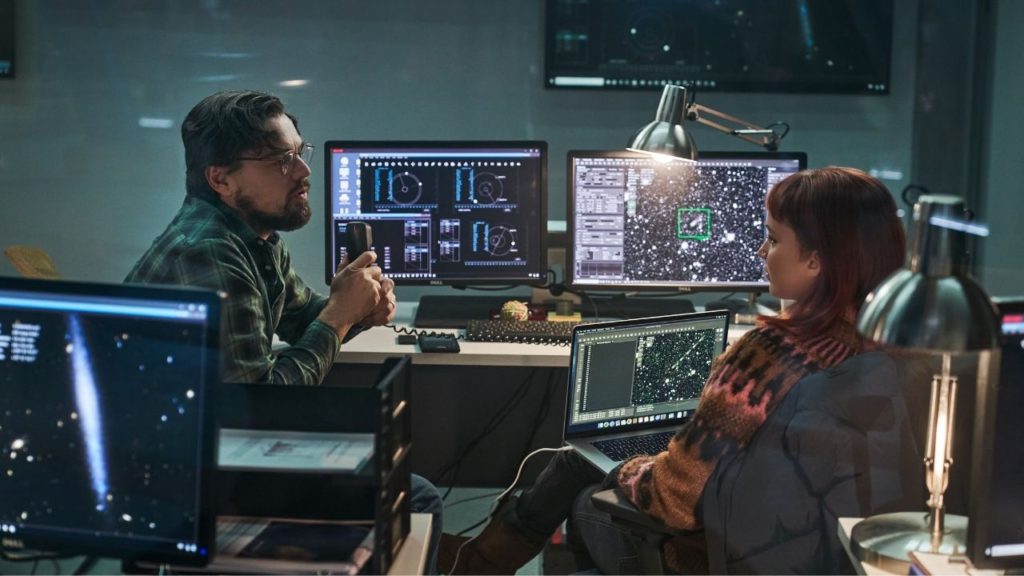
Adam Mckay’s eleventh-hour attempt at a climate action wake-up call comes in the form of two astronomers, Kate Dibiasky (Jennifer Lawrence) and Dr. Randall Mindy (Leonardo Dicaprio), who pull a Chicken Little after discovering the world’s expiry date. The “planet-killer” in question, a comet comparable to the one that rendered the extinction of the dinosaurs, isn’t of any concern to America’s biggest gun: President Orlean (Meryl Streep). After a disappointing audience with the president and her nuisance of a son (Jonah Hill), the frustrated duo fall into the arms of the press. Daytime news presenters, played by Tyler Perry and Cate Blanchett, agree to host the astronomers but insist on “keeping bad news light.” Kate and Randall are left with no choice but to go on a six-month tirade of trying to present a reality of which the world won’t see. Other big names that make a peep are Timothée Chalamet as Yule, a shoplifter-turned-suitor, and Ariana Grade as an airhead pop-star, Riley Bina.
Every character is an archetype. The outspoken young woman with a propensity for public outbursts and meltdowns. The no-backbone older man who stammers and stumbles in the face of responsibility. The Trump caricature of a leader too busy securing her political agenda. The nepotism baby with about as much autonomous thought as a bucket and mop. The business mogul hellbent on finding a greedy opening in every decision. The media, disfigured by the horrors of celebrity gossip and clickbait.
It feels all too animated, and not in a good, Chicken Little, way. The writing is clunky and comes off as a sketch, especially when trying to deliver critical messages tinged with comedy.
Don’t Look at All
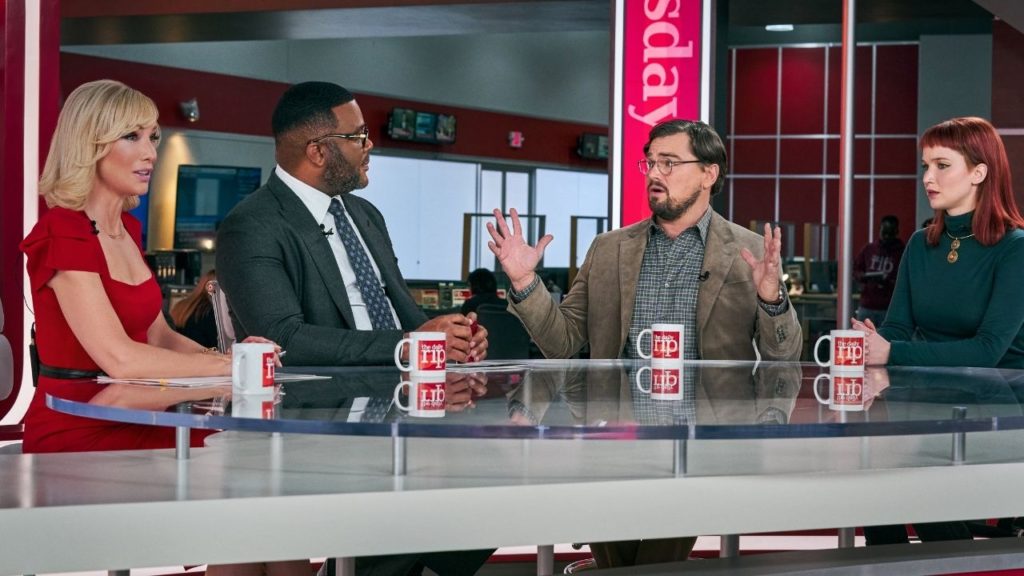
My issue with Don’t Look Up isn’t that it’s terrible. Just that it’s painfully average. The sort of film you pick out on a lazy Tuesday night, maybe crack a smile or two, takes a prick out your conscience, and then forget about in a week. The script feels akin to what a woke Twitter thread looks like when it gets its fifteen minutes of fame. The government, media, and the masses are all presented as participants in a ragtag game of Let’s Pretend. Compounded with as much subtlety as the 6-mile-wide comet advancing towards them, it fails to capture what makes humanity worth fighting for.
Yet, there is a singular moment that is immensely touching. Randall arranges for a last meal with the group and his family. Everyone joins hands and Yule says an earnest prayer in the wake of imminent doom. A slow piano piece plays in the background of this tranquil moment while the rest of the world is in disarray. They’re at the end of the line, but it isn’t met with begrudging acceptance or remorse. It is deeply poignant, showing the various faces of humanity at its end, yet oddly comforting to know that we don’t quite share their fate. Not yet anyway.
It might just be the only salvageable moment in the film. Though not nearly enough to be worthy of a Best Picture win. Take a page out of Chicken Little’s book. Make an ally out of your audience, rather than antagonize them. Especially when trying to rouse a response against a common evil.

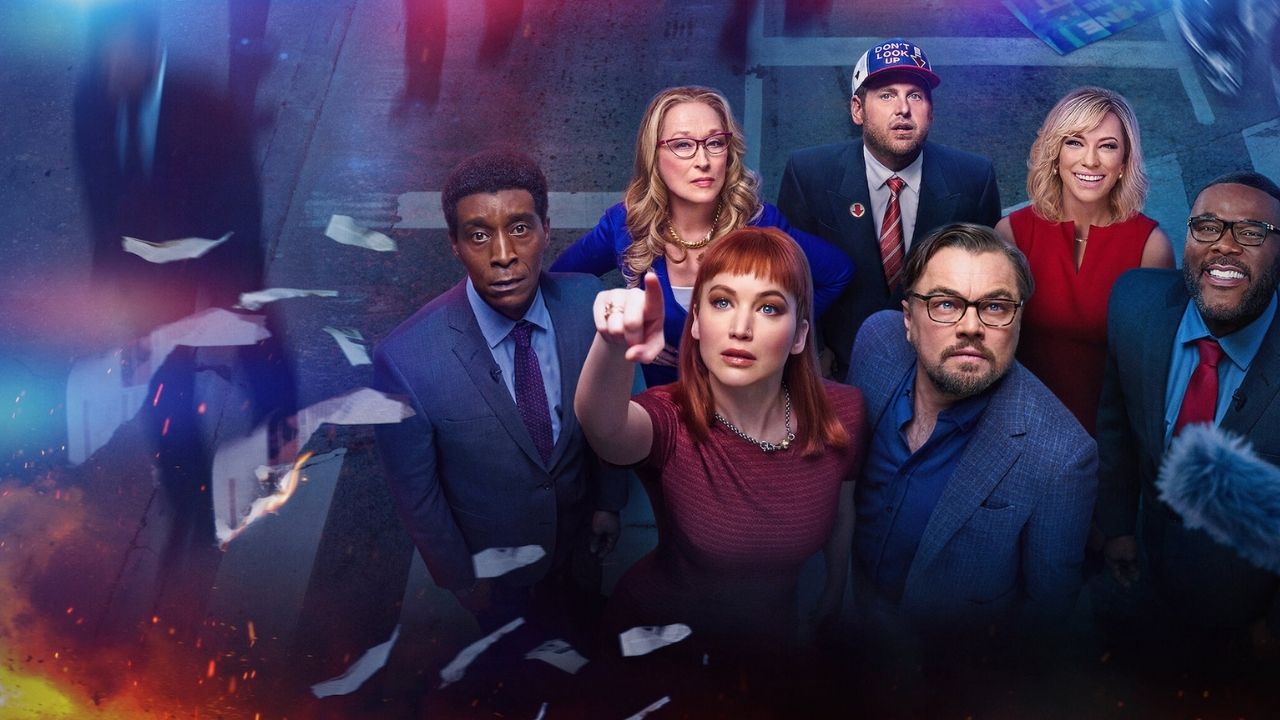
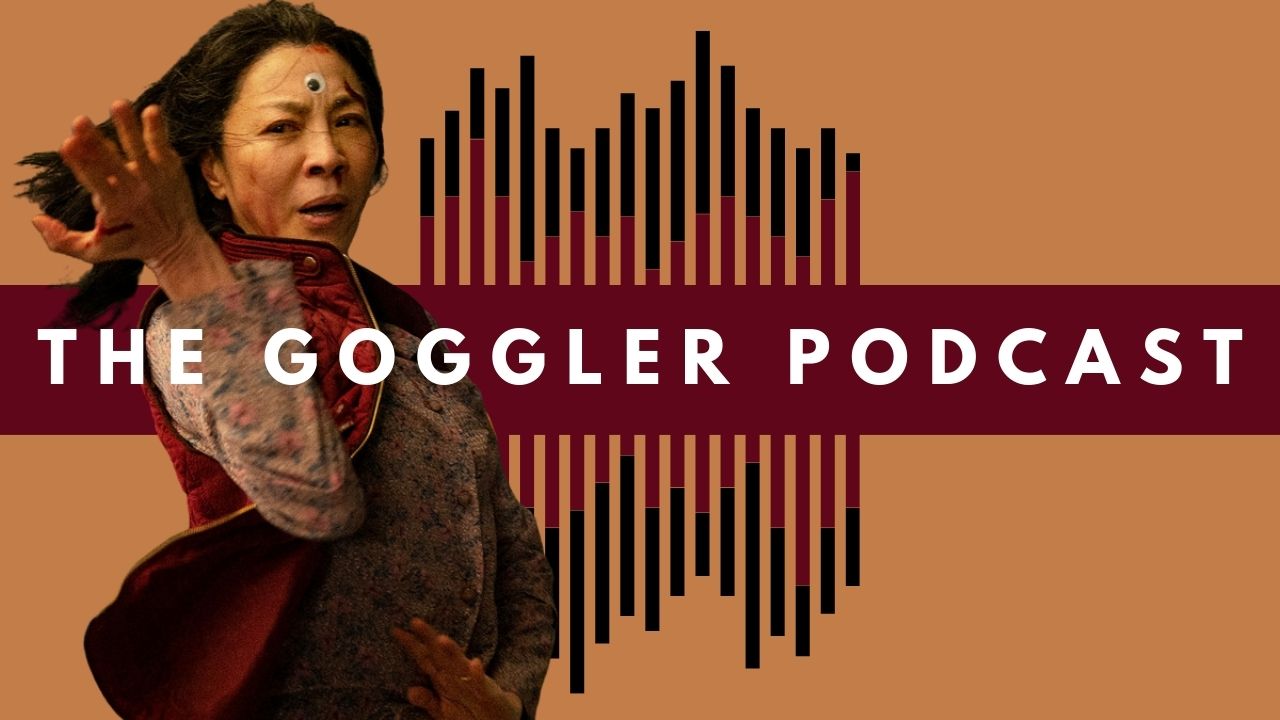
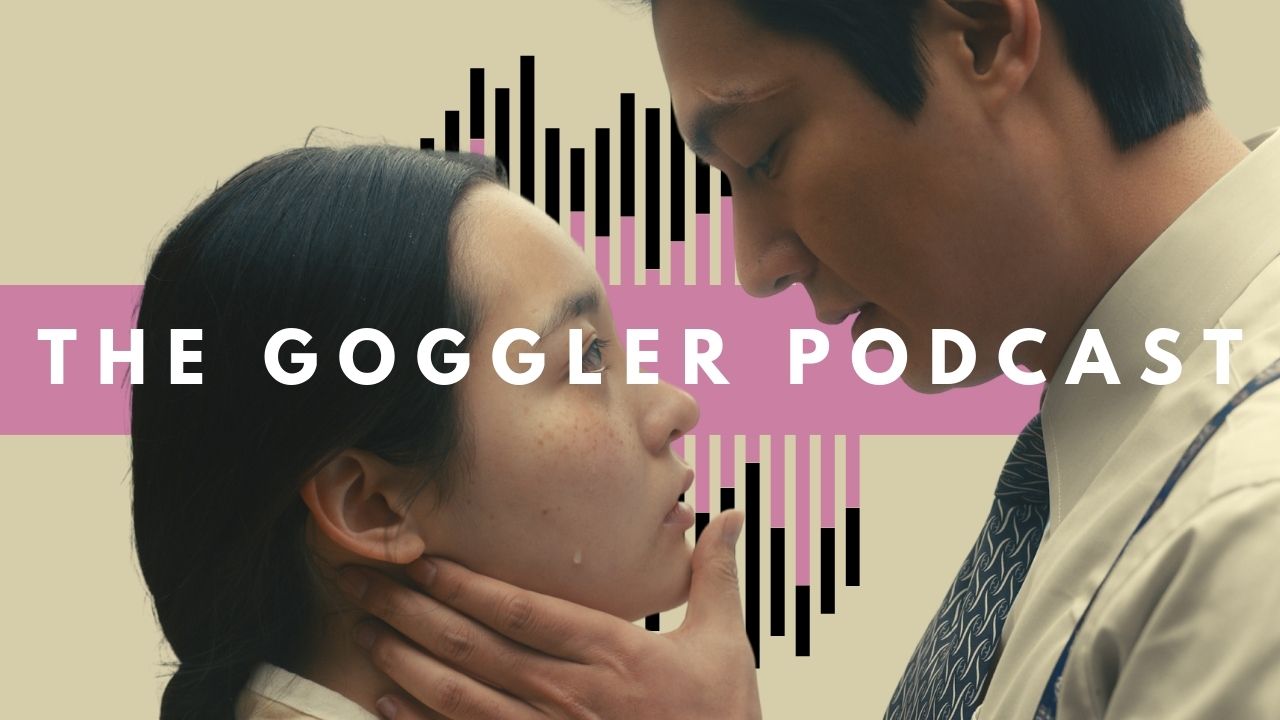
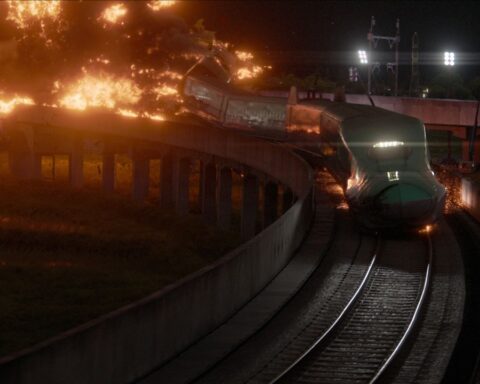
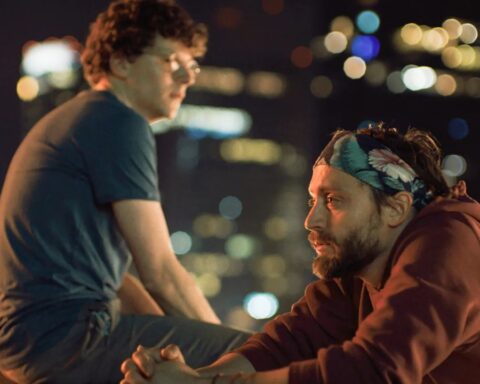
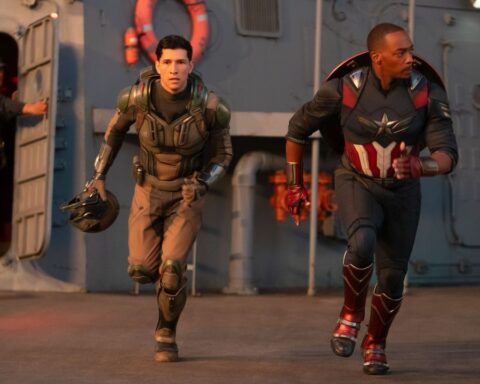
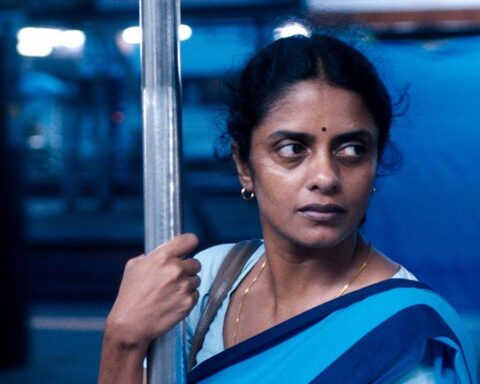
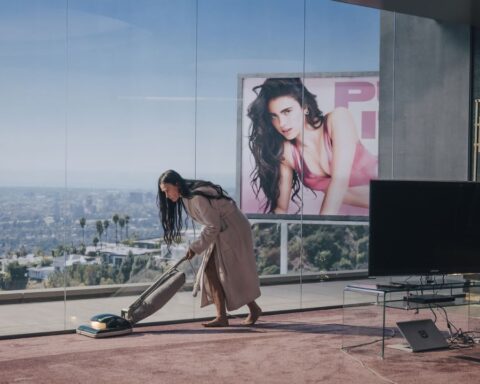
Follow Us